Introduction & Analysis
This collection of open-source English-language news articles published over the past week highlights significant events and issues concerning Myanmar. They present a snapshot of the country's safety and security landscape.
- Myanmar's military junta is attempting to solidify its power by rebranding its governing body as the National Security and Peace Commission (NSPC) or State Security and Peace Commission (SSPC), and planning a "sham election" for late 2025/early 2026, which is widely condemned by international and domestic groups, including 237 civil society organizations and Japan, as illegitimate and designed to perpetuate military rule.
- This push involves the reinstatement of privacy law suspensions, allowing warrantless arrests and surveillance across the country, imposition of martial law in over 60 resistance-held townships, new laws with death penalties for election disruption and a minimum of three years imprisonment for related offenses, and continued atrocities including airstrikes on civilians, schools, and hospitals, systematic denial of healthcare in prisons leading to an alarming number of deaths in custody, and persistent human trafficking, particularly of women and girls forced into marriages in China.
- In response to the junta's actions, international bodies like ASEAN have unequivocally denounced the election plan and supported Timor-Leste's official accession to the bloc in defiance of the junta's bullying tactics and illegitimate claims to state authority, while human rights groups, including the UN Special Rapporteur, accuse the US of undermining international efforts by rolling back sanctions on entities supplying arms and support to the Myanmar military despite evidence these supplies are used in attacks that constitute potential crimes against humanity and war crimes.
- Meanwhile, ethnic armed groups such as the Arakan Army (AA) and Kachin Independence Army (KIA) are making significant territorial gains in the ongoing civil war, with the AA controlling most of Rakhine State and the KIA capturing 14 towns in Kachin State, which is further complicated by China's involvement, including the deployment of private security firms that are now assisting the junta with drone operations and sniper deployments beyond mere infrastructure protection, and China's dominance in rare earth mining operations in rebel-controlled areas, where all raw materials from these mines must still be shipped to China for processing.
ASEAN
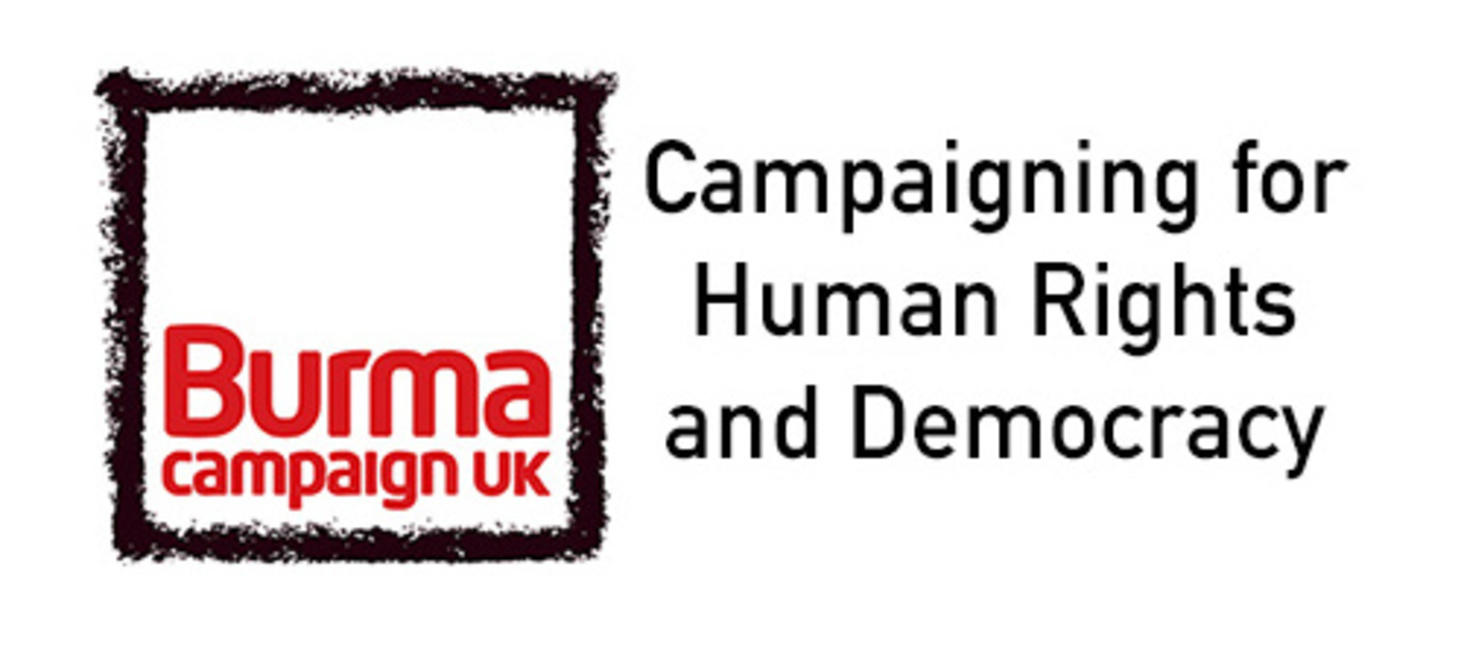
ASEAN’s Denouncement of the Junta’s Sham Election
A joint statement by 237 civil society organizations acknowledges ASEAN's clear condemnation of the Myanmar military junta's planned sham election and its position that the election "is not a priority" and "will not solve any problems". They also welcome ASEAN's support for Timor-Leste's official admission to the bloc in October 2025, which defies the junta's bullying tactics and illegitimate claims to state authority. Despite these positive steps, the organizations express deep disappointment with ASEAN's continued reliance on its "failed Five-Point Consensus" (5PC) and urge the bloc to move beyond the 5PC to unequivocally support the Myanmar people's goals of dismantling military tyranny and establishing an inclusive federal democracy.
Census & Elections
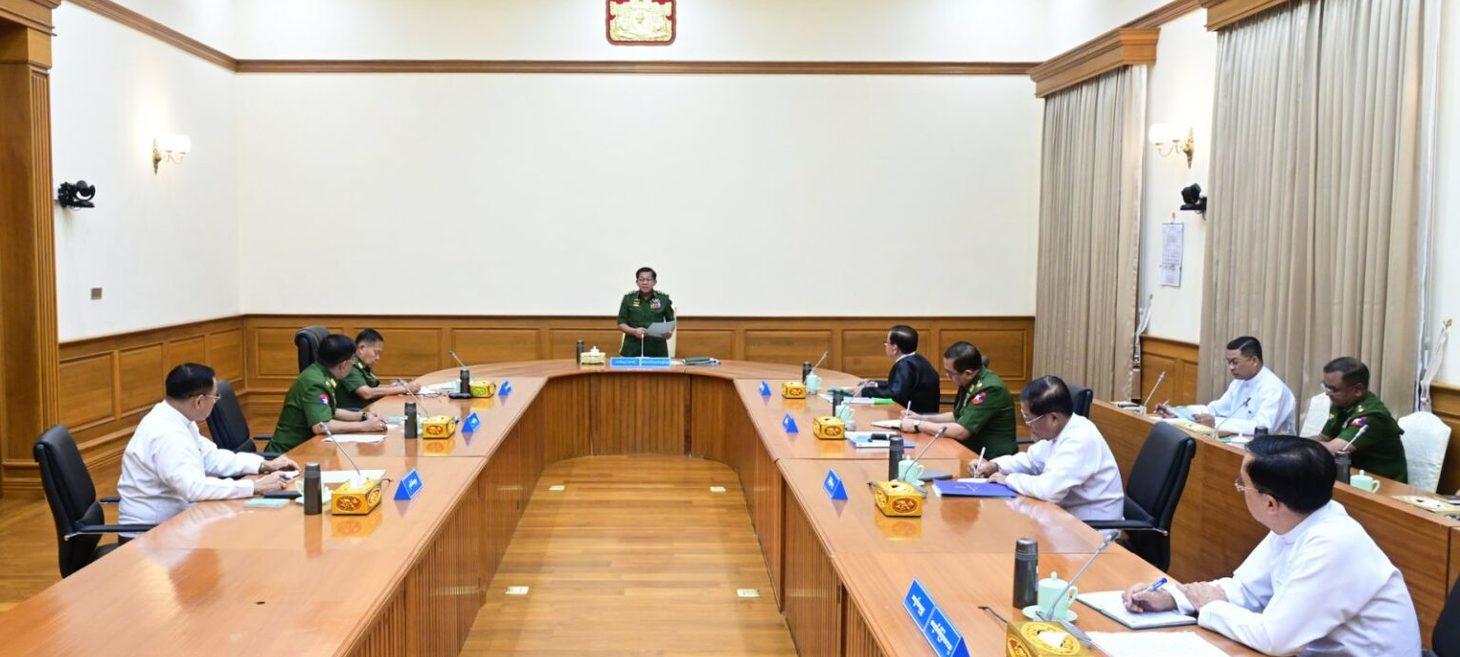
Myanmar junta says elections will be held in phases due to security concerns
Myanmar's military chief has promised elections by the end of 2025. However, the regime now states that voting will be held in phases due to security concerns, specifically noting 63 townships are under martial law and clashes are intensifying. This phased approach comes despite the junta leader's earlier assertion that elections would proceed regardless of escalating violence.
Conflict
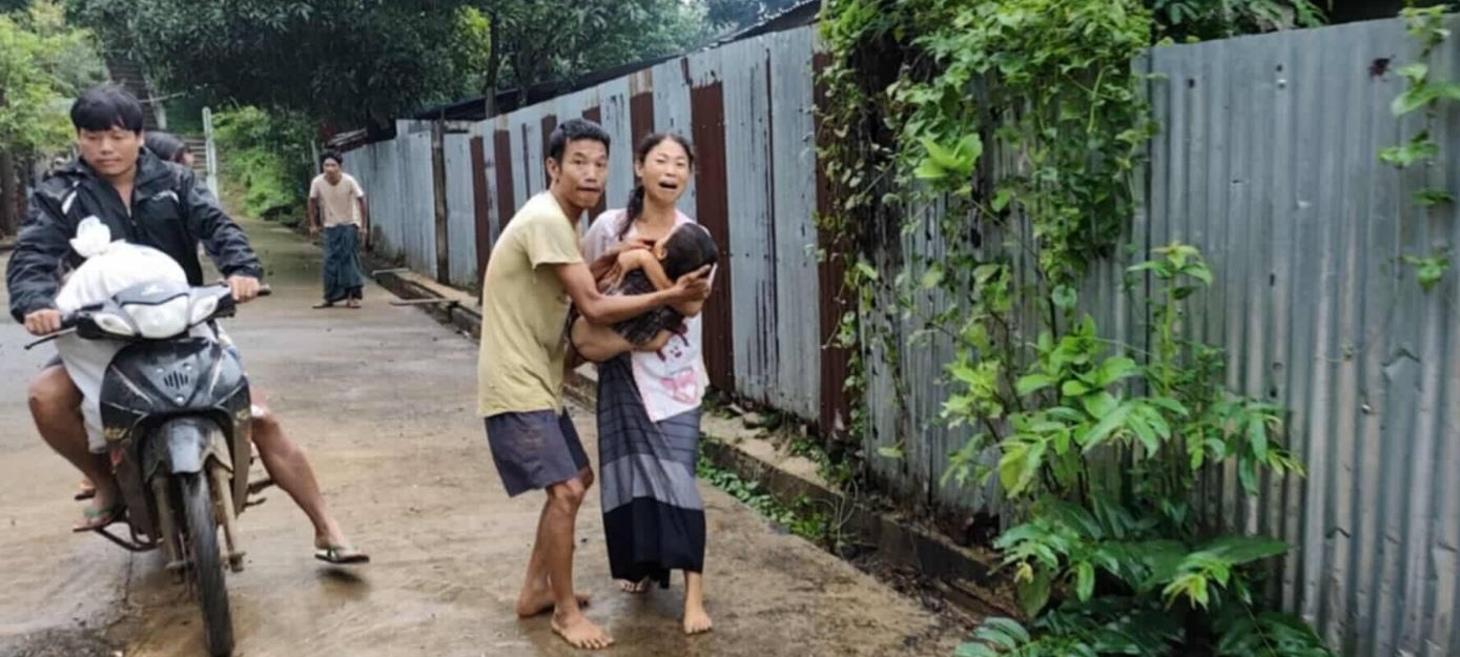
Junta shelling kills three near Myanmar jade centre of Hpakant
Myanmar’s military junta conducted shelling near the jade centre of Hpakant, which resulted in three deaths, as the regime steps up efforts to retake lost territory in Kachin State. This incident is part of widespread conflict, with other reports on August 5, 2025, detailing four people killed in Mandalay Region’s Natogyi Township and the intensification of the regime’s push to retake an outpost in Sagaing’s Pale Township. Additionally, on August 4, 2025, Myanmar regime airstrikes killed 19 in Mogok and Thabeikkyin, highlighting ongoing violence and broader issues such as the blocking of earthquake aid to resistance-held territory and harsh prison conditions.
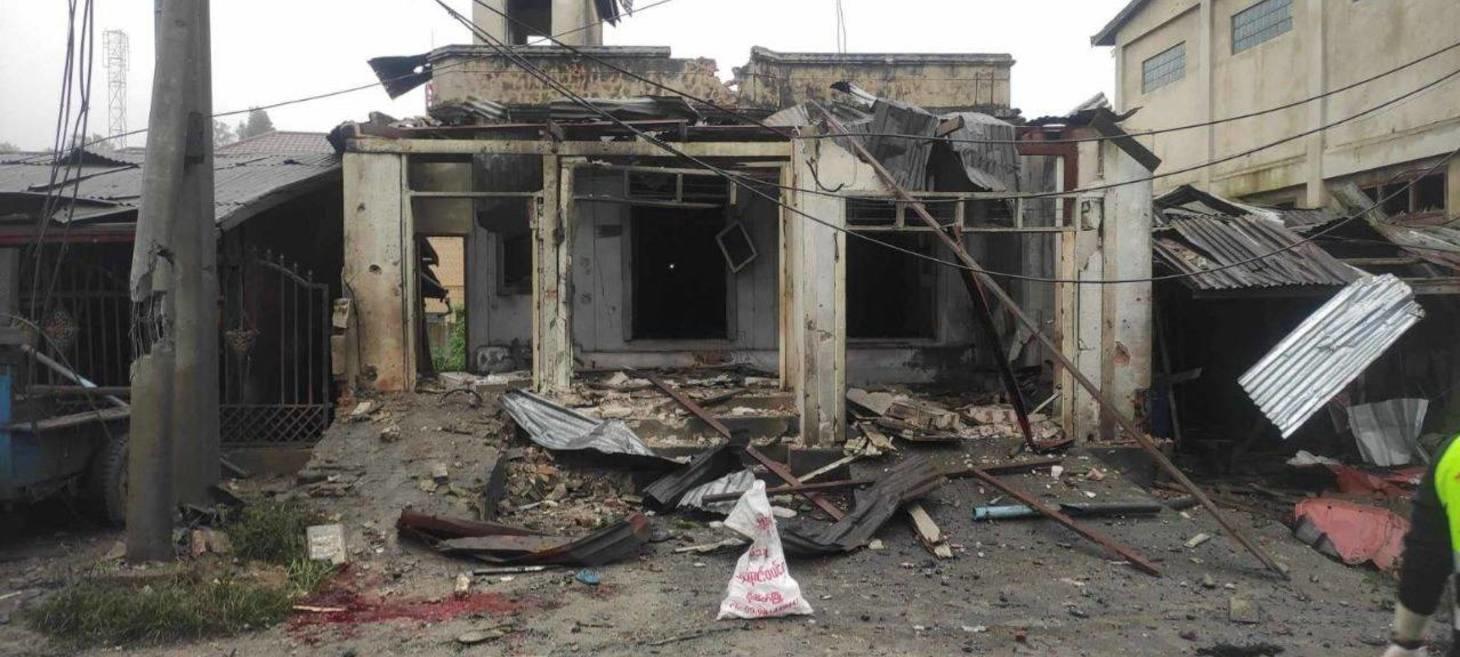
Mass Casualties as Military Escalates Airstrikes in Northern Shan State
Myanmar’s military council has escalated airstrikes and artillery bombardments in northern Shan State, resulting in at least 40 civilian deaths, including children, and over 100 wounded. These assaults have intensified between July and early August, primarily targeting Ta’ang (Palaung) National Liberation Army (TNLA)-controlled territories such as Kutkai, Monglon, Kyaukme, Nawnghkio, Hsipaw, and Mongkut. In response to the ongoing violence and rising casualties, the military council has imposed martial law across 15 northern Shan State townships, deepening the humanitarian crisis and prompting calls for international intervention.
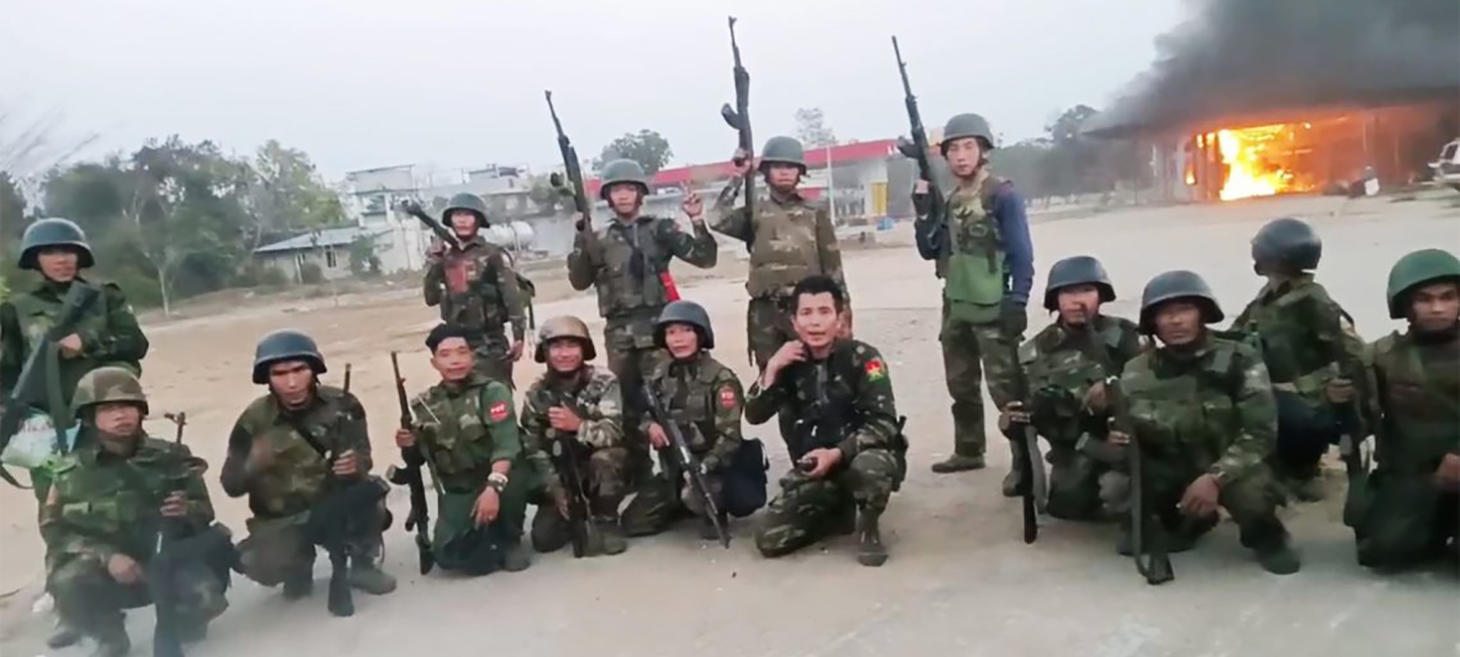
Clashes Continue After Myanmar Junta Flotilla Arrives in Bhamo
Clashes continue between the Kachin Independent Army (KIA) and the military regime in Kachin State after a junta flotilla, which sailed from Mandalay and arrived on August 1, brought reinforcements, ammunition, and supplies to the strategic town of Bhamo. Of the 17 boats that embarked, only eleven made it to Bhamo, with resistance forces destroying the rest along the 500km journey through resistance-controlled areas up the Irrawaddy River. The arrival of the flotilla is expected to make it harder for the KIA to capture Bhamo town, which is crucial due to its location on a fork of National Highway 31 and the Irrawaddy River, making it a key hub for transport, trade, and supply routes.
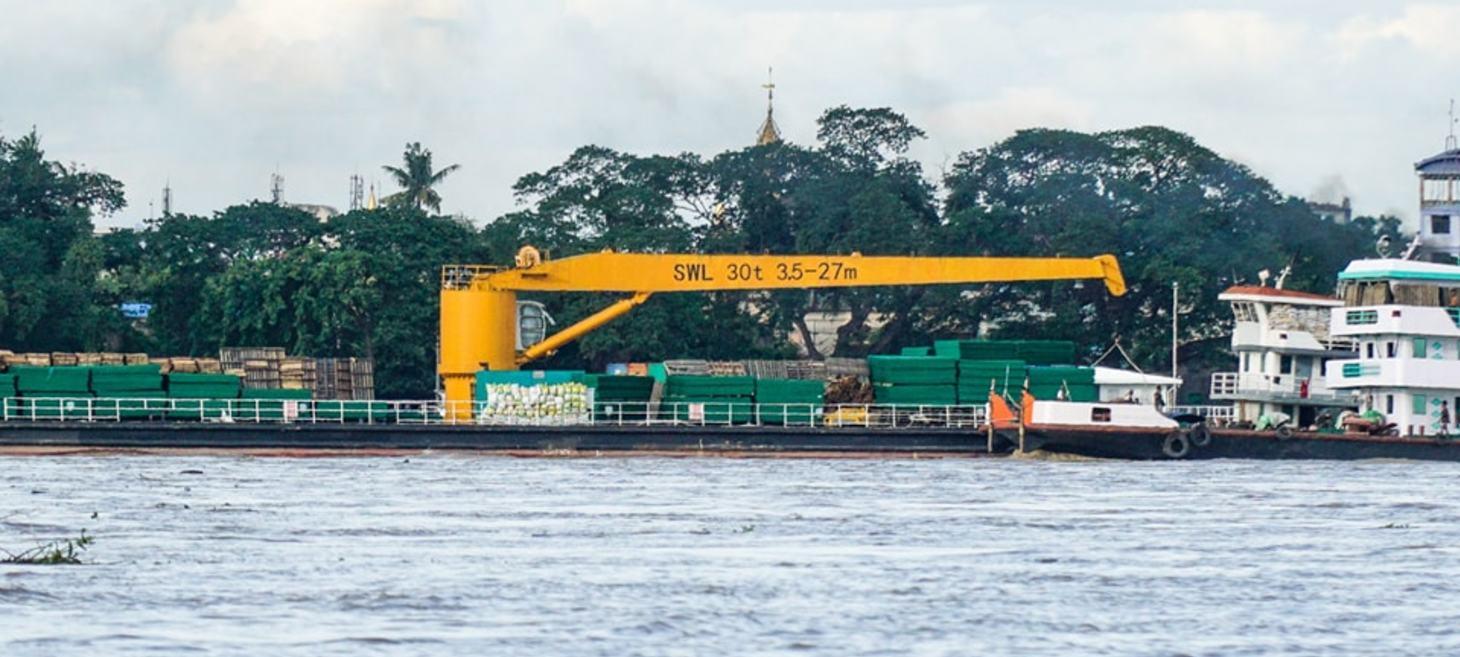
Resistance ambushes junta flotilla on Chindwin River, setting fire to five vessels
Resistance forces ambushed a junta flotilla on the Chindwin River, successfully setting fire to five vessels in the second week of July. This incident highlights the junta's increasing reliance on water routes and aircraft to move supplies and reinforcements, due to its diminished capacity to deploy ground forces amidst a multifront war. The event is part of a broader conflict in Myanmar, with other recent reports detailing various junta attacks, shelling, and military pushes across different regions.
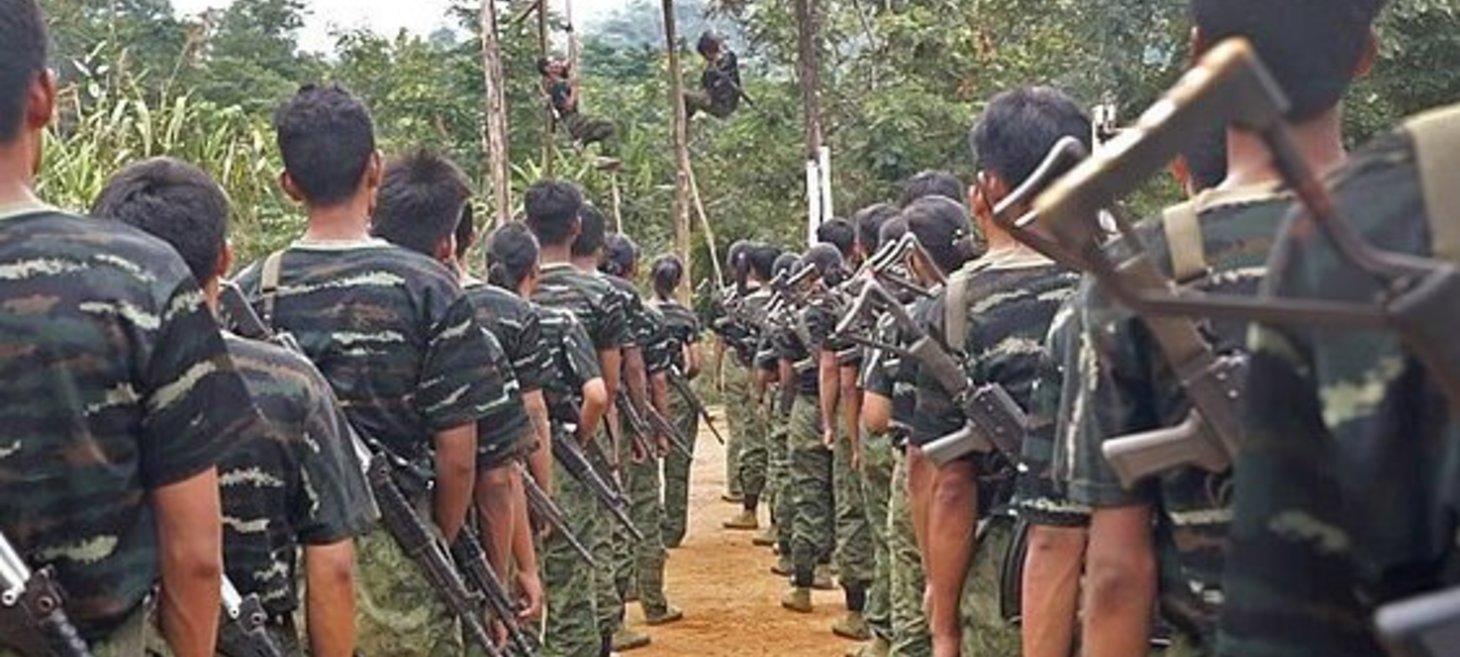
Arakan Army Advances: Implications for Myanmar’s Civil War
The Arakan Army (AA) is identified as one of the most powerful ethnic armed organizations significantly shaping outcomes in Myanmar's ongoing civil war. The AA currently holds the grand majority of territory in Rakhine state and is pushing further into junta territory in other areas. Understanding the AA's current position, network of alliances, and possible future moves is critical, as their continued movements, priorities, and constraints will deeply shape the war’s trajectory.
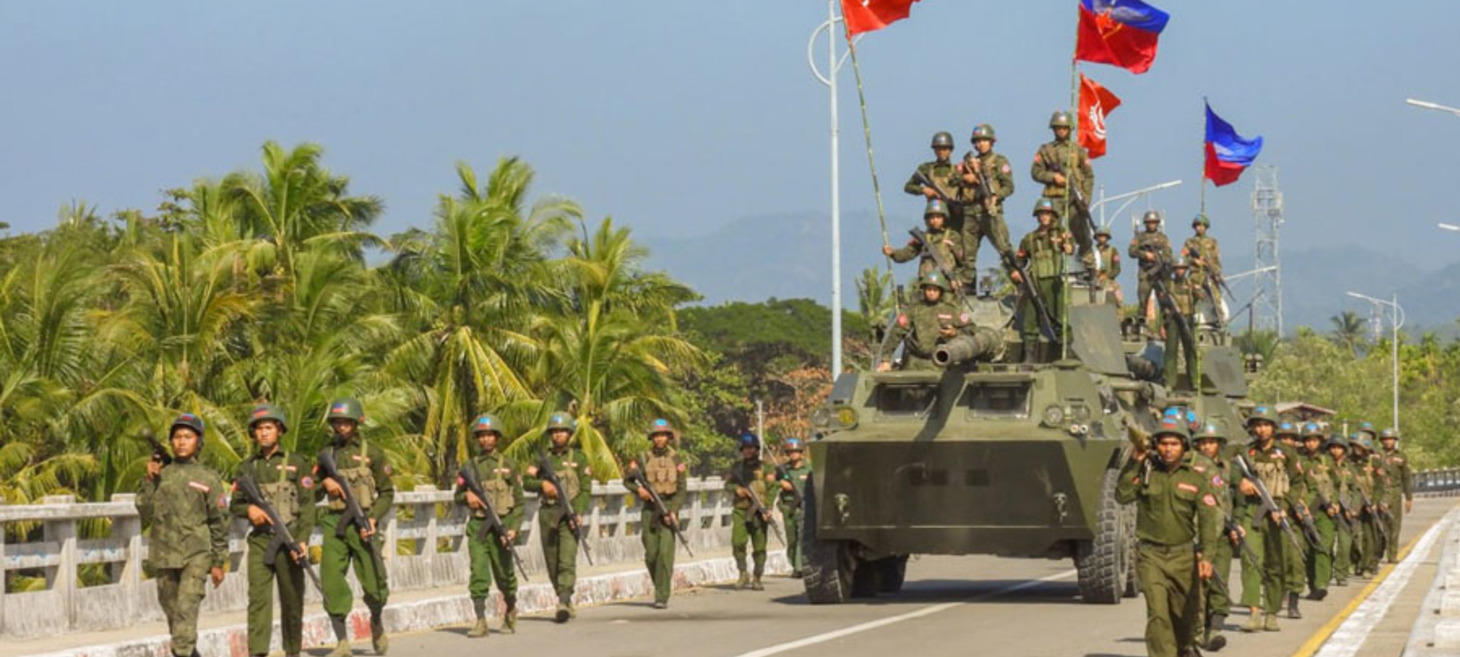
After Myanmar military junta, now it's AA's turn
The Arakan Army (AA), a powerful ethnic resistance force in Myanmar, has been accused by Human Rights Watch (HRW) and Fortify Rights of unleashing severe repression and control over the Rohingya population. Fortify Rights' investigations specifically uncovered allegations of widespread abductions, brutal torture, killings, and beheadings of Rohingya civilians from April to July 2025, urging the International Criminal Court to investigate. While these accusations are detailed and supported by testimonials, the AA has categorically rejected them as false and defamatory, even as Rohingyas, who previously faced similar brutalities from the Myanmar Army, continue to suffer.
Crime & Narcotics

Myanmar military courts sentence 12 to life for human trafficking, including Chinese nationals
Myanmar military courts have sentenced 12 individuals, including five Chinese nationals, to life imprisonment for their involvement in various human trafficking cases. These offenses specifically included the online distribution of sex videos and the trafficking of Myanmar women into forced marriages in China, a persistent issue made worse by Myanmar's civil war. Although there was a decline in reported trafficking survivors from 2020-2023, authorities have addressed 53 human trafficking cases in 2024, with 34 of them involving China, indicating a recent resurgence in such crimes.
Cybersecurity & Cybercrime
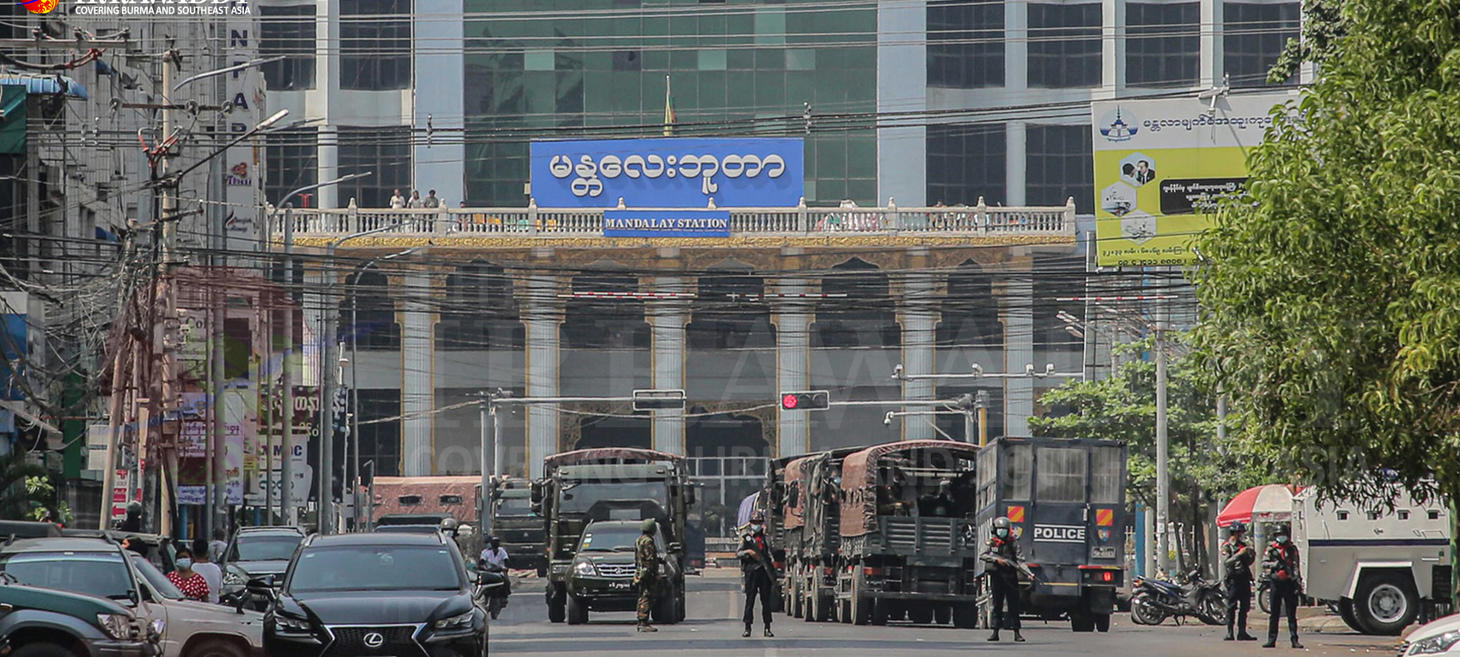
Myanmar Junta Launches Street Phone Checks as Cybersecurity Law Takes Effect
The Myanmar junta has initiated street phone checks in cities like Mandalay and enforced a new Cybersecurity Law. These measures involve invasive searches of mobile phones for VPNs and social media, with the law criminalizing VPN use and granting the regime extensive powers to access user data and conduct online surveillance. Additionally, the regime is employing a digital surveillance tool called PSMS (Person Scrutinization and Monitoring System) for identity verification at various locations, leading to arrests and a broader implementation of mass surveillance through militias and CCTV cameras.

Myanmar enforces Cybersecurity Law, targeting unauthorised online gambling and VPN services
Myanmar has begun enforcing its Cybersecurity Law, which came into force on July 30, 2025, after being enacted on January 1, 2025. This law aims to ensure the safe use of cyber resources, protect the country from cyber threats, and effectively prosecute cybercrimes, applying to offenses committed domestically, on registered vessels or aircraft, in the national cyber domain, or by Myanmar citizens abroad. Key targets of the law include unauthorized online gambling systems and the establishment or provision of VPN services without permission, carrying penalties such as imprisonment, significant fines for individuals and organizations, and confiscation of evidence.
Foreign Affairs

Trump’s Myanmar Strategy Backfires as Rare Earth Realities Set In
The Trump administration's strategy to secure rare earth minerals from Myanmar has backfired due to a profound misunderstanding of the country's complex political landscape, where the Kachin Independence Army (KIA) controls critical mining operations, not the military junta. This approach, which involved lifting sanctions on junta allies, has been criticized by experts for prioritizing resource access over human rights, given that the raw materials extracted by ethnic armed groups must still be processed in China, making U.S. access difficult and causing severe environmental damage. Instead of pursuing these "doomed arrangements," it is suggested that the U.S. should reverse sanctions relief, support Myanmar's pro-democracy movement, and invest in domestic rare earth processing while prioritizing democratic governance and human rights.
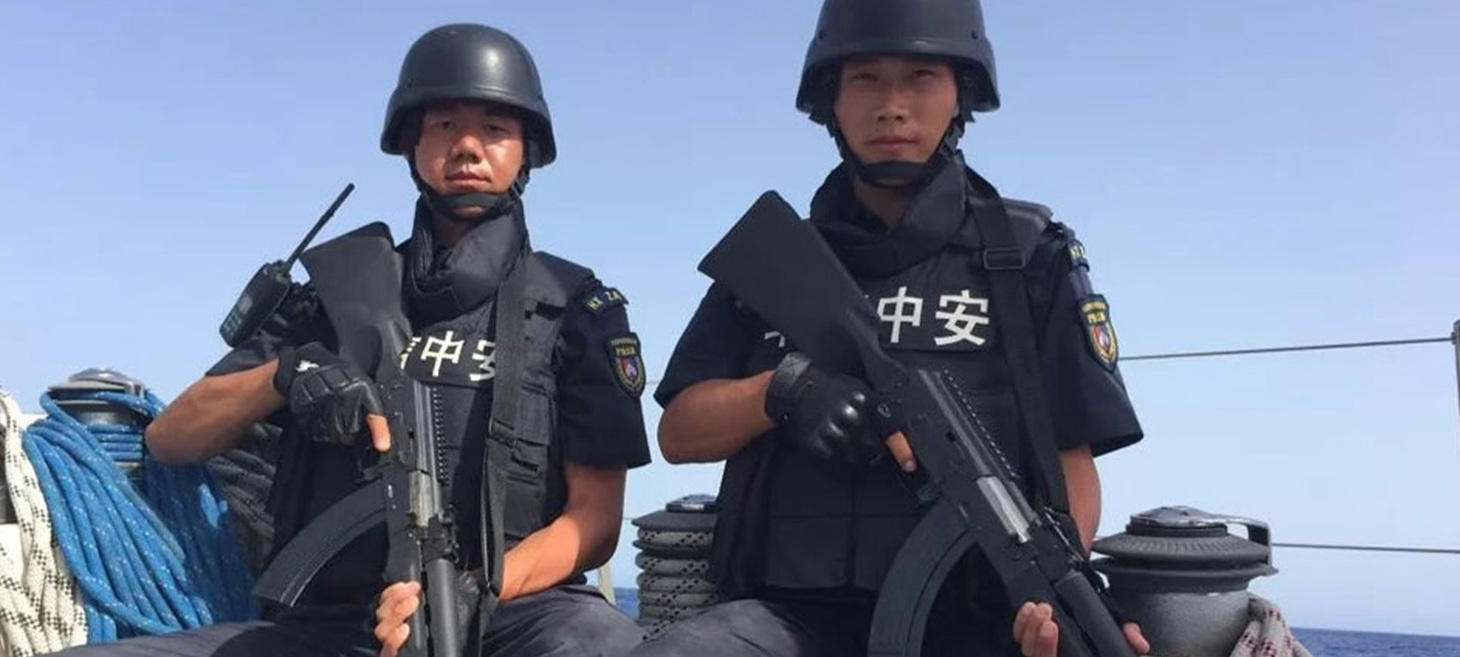
Security Beyond Borders: China’s Private Armies
China is increasingly relying on private security companies (PSCs) to protect its growing overseas economic interests, particularly those associated with the Belt and Road Initiative, employing them as a flexible and deniable tool in its external security strategy. These PSCs are evolving from merely safeguarding compounds to participating in combat activities, as evidenced by their reported involvement in drone operations and sniper deployments in Myanmar, which blurs their commercial claim and marks a significant shift from passive protection. This approach allows China to project strength without overt military intervention, but it also challenges host nation sovereignty, risks dragging Beijing into uncontrollable conflicts, and signals a "coercively commercial" Chinese presence that is willing to defend its investments through means short of war.
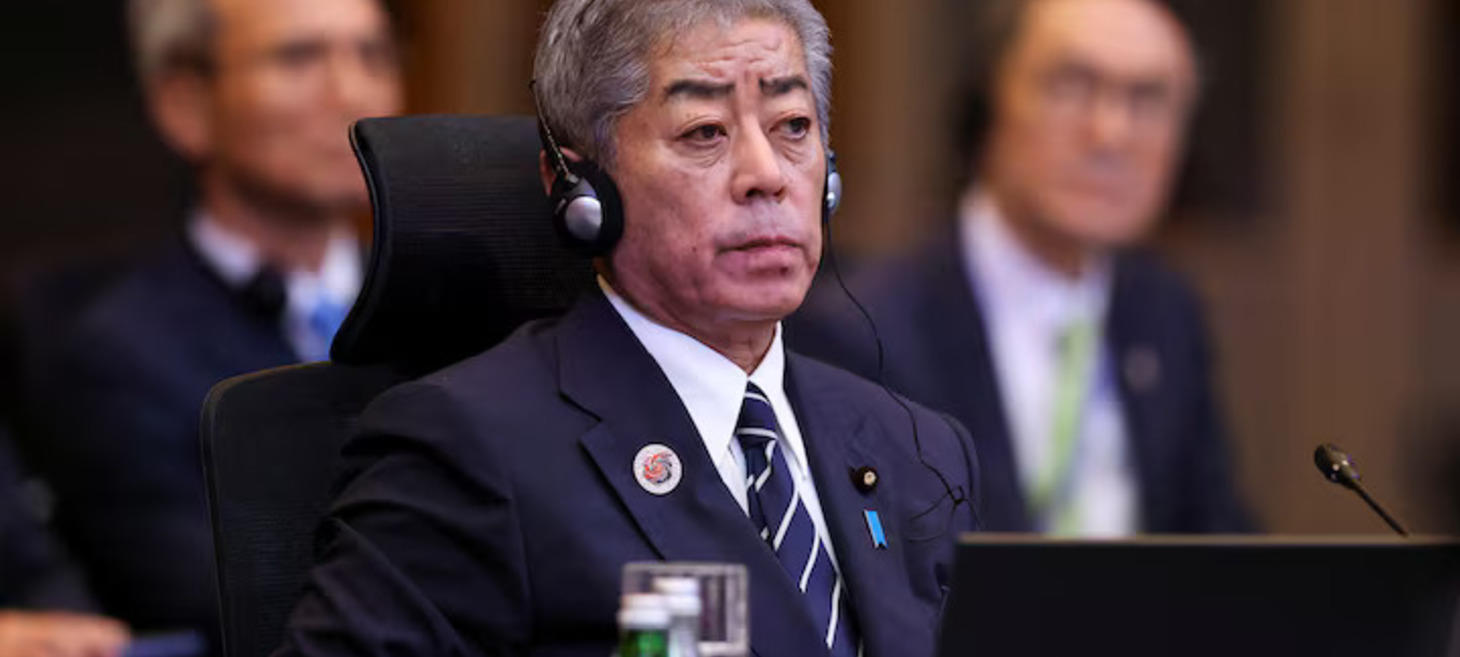
Japan says ‘seriously concerned’ about Myanmar elections without release of those detained
Japan is "seriously concerned" about Myanmar's planned elections without the release of those detained, including former leader Aung San Suu Kyi. Japan's Foreign Minister Takeshi Iwaya stated that these elections could provoke "further strong backlash from the people" and "make a peaceful resolution more difficult". Consequently, Japan strongly urges the Myanmar military to immediately stop the violence, release all detainees, and restore a democratic political system.
General News

The US to Pilot Massive Visa Bonds for High Overstay Countries Like Myanmar, Bhutan, Turkmenistan, Djibouti And More: How Will This Impact Tourism and Global Travel Trends?
The United States is implementing a pilot program in August 2025 that will require travelers from countries with high visa overstay rates to post significant visa bonds, ranging from $5,000 to $15,000, in addition to a $250 visa integrity fee. This initiative targets countries identified by the US Department of Homeland Security's Entry/Exit Overstay Report, such as Myanmar, Bhutan, Turkmenistan, and Djibouti, which have high B-1/B-2 visa overstay rates and often weaker passports. The US tourism industry has expressed concerns that these substantial financial barriers could discourage legitimate travelers, particularly from economically disadvantaged regions in Africa, Asia, and Latin America, potentially leading to a decline in international tourism and revenue for the US.

Airbus divests from Chinese arms company following global campaign – KIC News
Airbus has divested from AVIC, a Chinese aircraft and arms manufacturer. This move comes after a global campaign by groups like Justice for Myanmar, Blood Money Campaign, and Burma Campaign UK, who welcomed the withdrawal of investment. AVIC supplies the Burmese military with jets used to bomb schools, hospitals, and homes, and campaigners aim to ensure international companies cut all links to the Burmese military.
Governance & Rule of Law
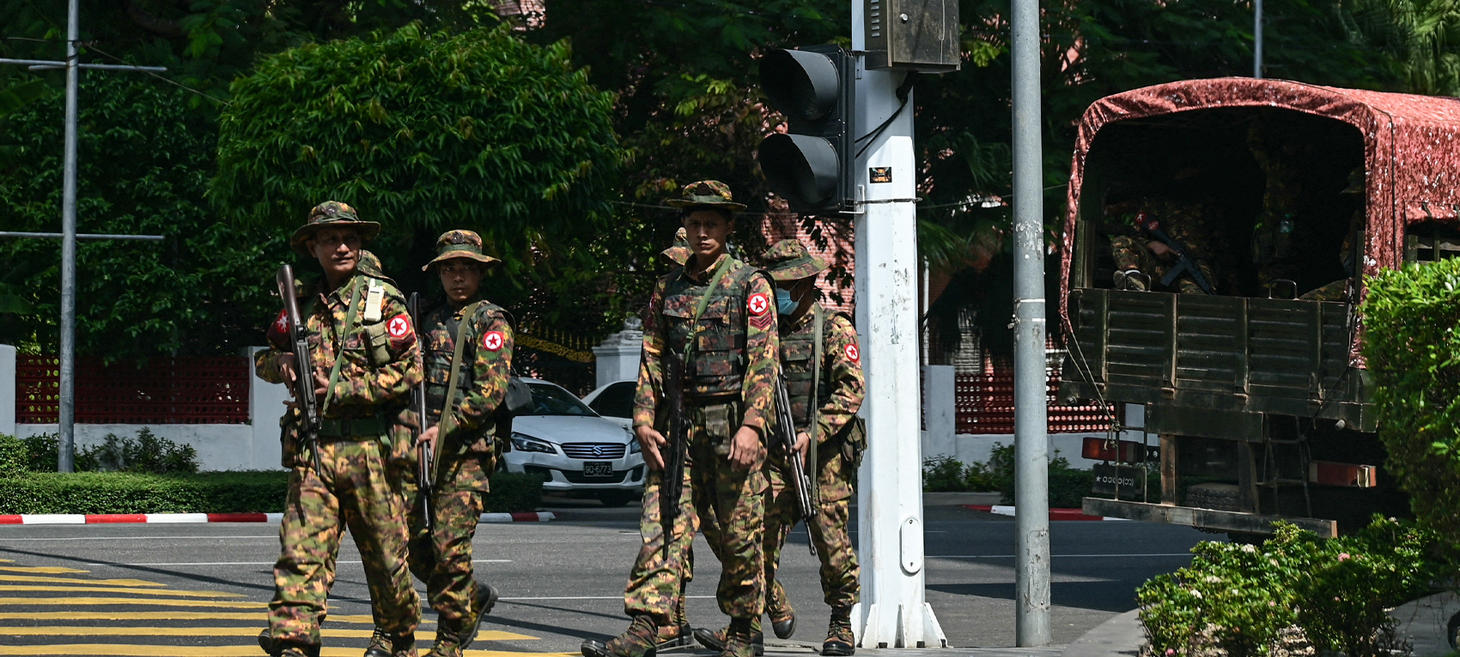
Myanmar Junta Reinstates Warrantless Arrests, Home Raids Ahead of Election
The Myanmar junta has reinstated the suspension of key privacy laws, allowing authorities to conduct warrantless arrests, home raids, and surveillance, and to intercept private communications. This move, announced by the National Security and Peace Commission (NSPC) and renewed by junta boss Min Aung Hlaing, is widely viewed as an attempt to suppress dissent ahead of a planned December election that critics consider a sham. Legal experts and political observers condemn the action as a blatant assault on basic rights, noting it effectively extends arbitrary powers nationwide, not just in martial law areas, thereby undermining protections that were established to end decades of unchecked surveillance.
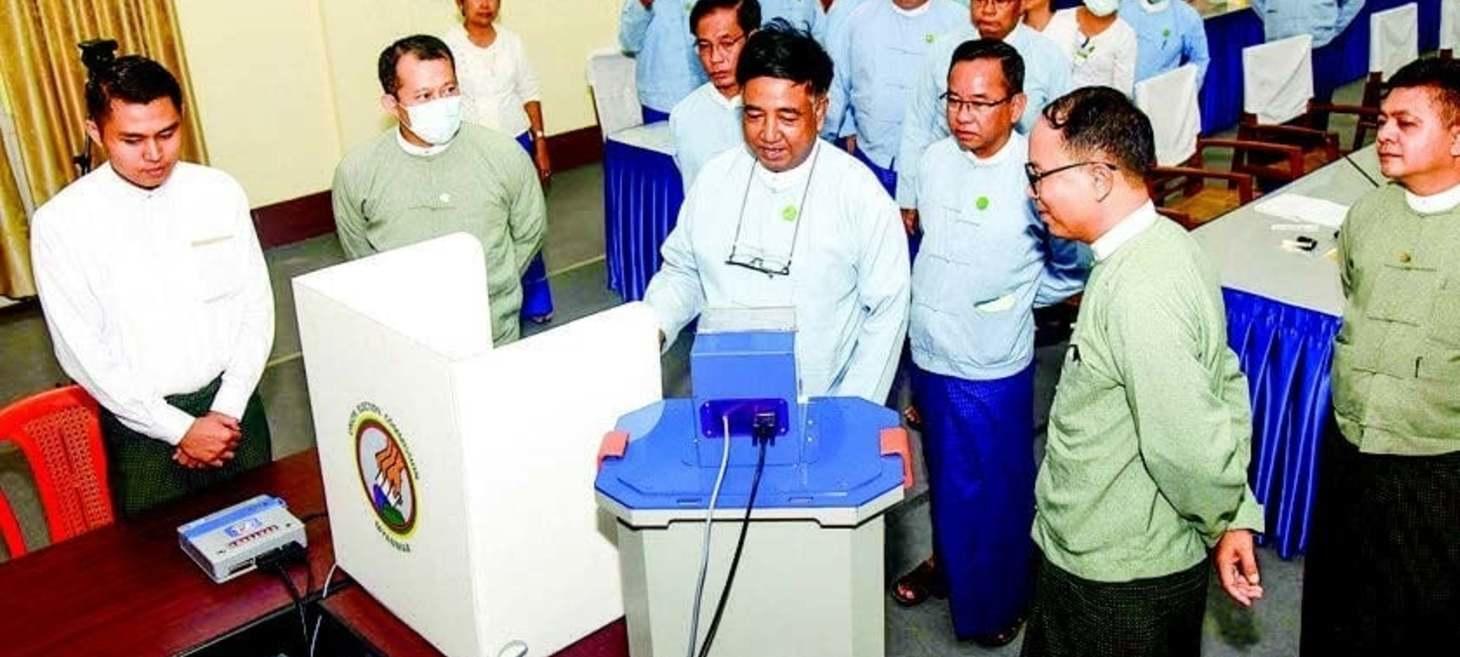
SAC PROMULGATES LAW TO PROTECT ITS PLANNED ELECTIONS: Junta gearing up to materialize its road-map
The State Administration Council (SAC) has promulgated a new 'Law on the Protection of Elections from Interference, Destruction, and Disruption,' signed by military leader Senior General Min Aung Hlaing, which imposes severe penalties, including death or life imprisonment, for actions like obstructing candidates, destroying election materials, or disrupting the election process, signaling the junta's determination to hold its planned elections. In response, anti-junta groups, particularly the National Unity Government (NUG), are advised to devise a grand strategy to counter this political onslaught, utilizing approaches such as advocacy and awareness campaigns, building alliances, civil disobedience, legal and political maneuvers, and seeking international support. To effectively counter the junta and achieve their goal of uprooting the military dictatorship, the anti-junta alliance must unite politically and militarily, maintaining a broad vision that avoids narrow ethno-nationalism and strives for a genuine federal democratic union.
Humanitarian
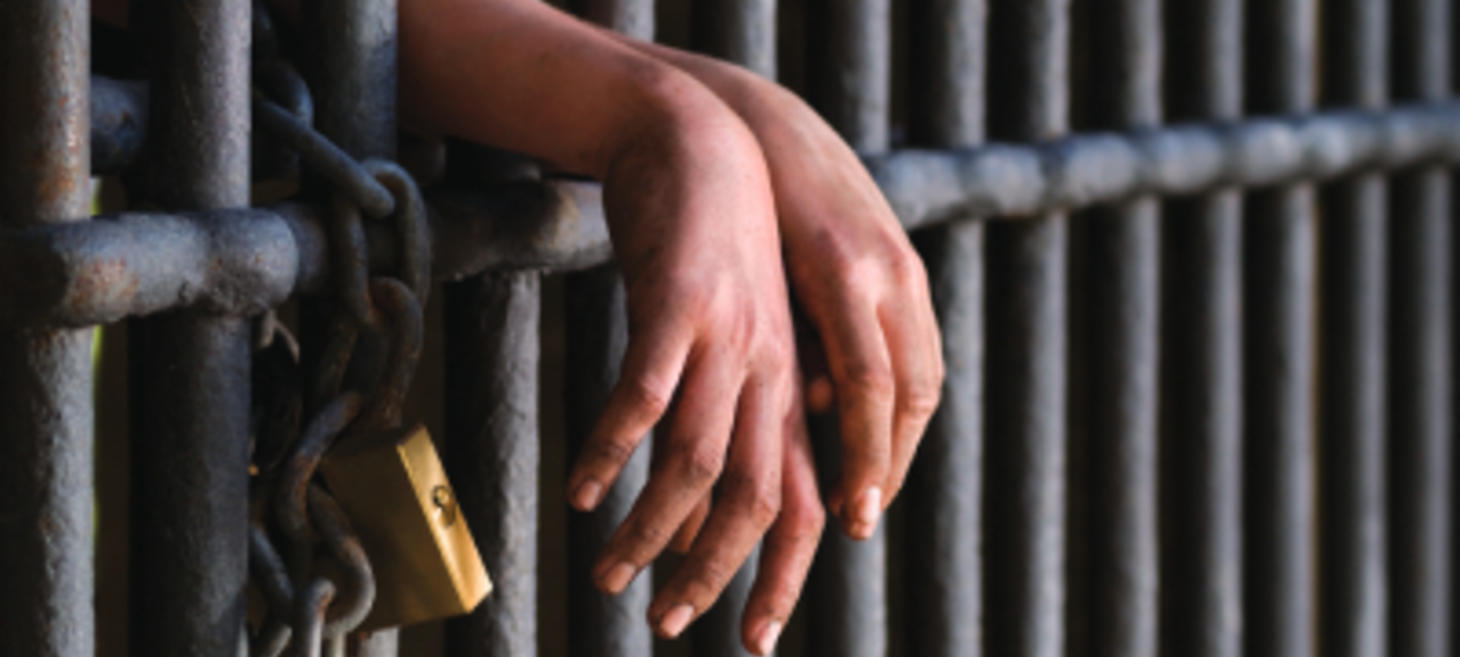
Systematic Denial of Healthcare Leading to Alarming Number of Deaths in Custody
Numerous human rights organizations are gravely concerned about the systematic denial of healthcare and pervasive torture in Myanmar's detention facilities, leading to an alarming increase in deaths in custody since the 2021 military coup. Over 1,800 people have reportedly died in custody since 2021, with over 70 deaths between January and July 2025 alone, including cases like Ma Wutt Yee Aung and Ko Pyae Sone Aung who allegedly died due to untreated injuries or denied medical care. These organizations demand that the Myanmar military urgently provide detainees with adequate healthcare equivalent to community standards, cease torture, release arbitrarily detained individuals, and adhere to international standards like the United Nations Standard Minimum Rules for the Treatment of Prisoners.
Natural Resources
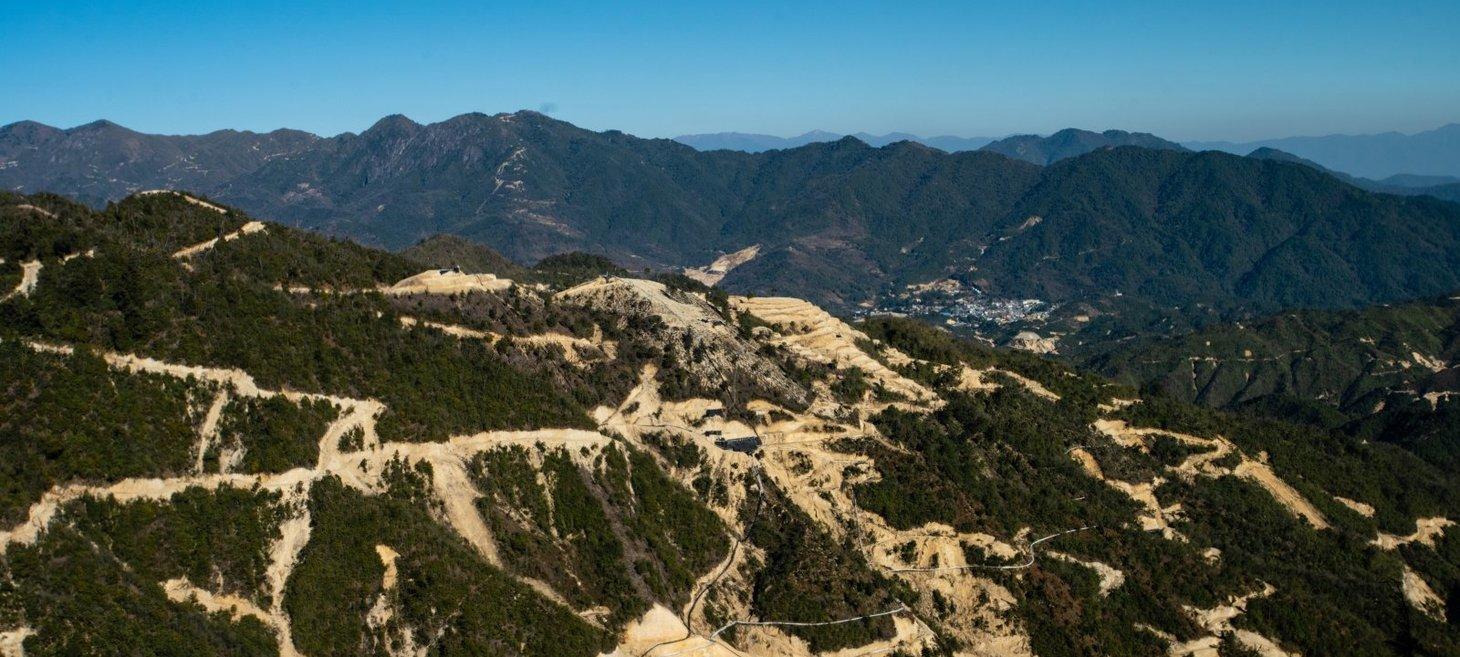
‘Strategic bargaining chips’: Kachin’s rare earth mining pause
Myanmar's Kachin State has become a significant source of rare earths, particularly heavy rare earths, with Chinese investors historically partnering with local groups for extraction, but the lucrative industry recently came under increasing pressure to resume after the Kachin Independence Army (KIA) seized Pangwa town. This takeover by the KIA, the administrative counterpart of which is the Kachin Independence Organization (KIO), coupled with China's border gate closures, caused a global "supply shock" and necessitated new negotiations between the KIO and Chinese companies over taxation and operating agreements, as previous arrangements were with military-aligned groups. While some rare earth exports from KIO-controlled territory have tentatively resumed under new KIO taxation, full resumption is complicated by political factors, including China's attempts to influence the KIA's military actions, and the KIO's internal challenges regarding resource governance, public trust, and diversifying market dependence beyond China.
Politics
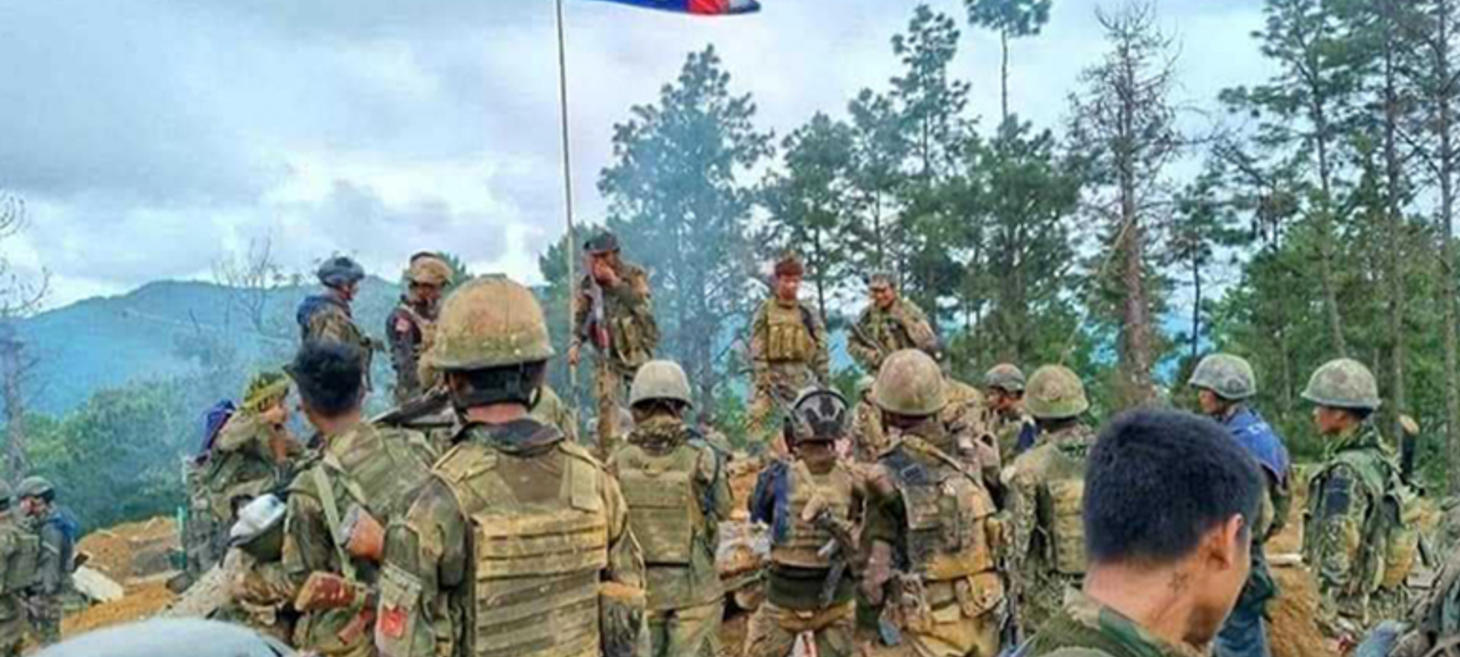
Assessing how the junta’s second chapter of rule will impact Chin State
The junta has rebranded its governing body as the National Security and Peace Commission (NSPC), transferring full authority to Min Aung Hlaing as acting president and declaring a "second chapter" of its rule. This new phase includes plans for a December election, which the Chin National Army (CNA) and Chin National Front (CNF) oppose, stating that polls will only be possible in Hakha and Tedim townships and warning Chin political parties against participation. In response to lost territories, the junta has declared martial law in seven of Chin State's nine townships and is expected to launch new military offensives to retake these areas before the election, relying increasingly on military means.
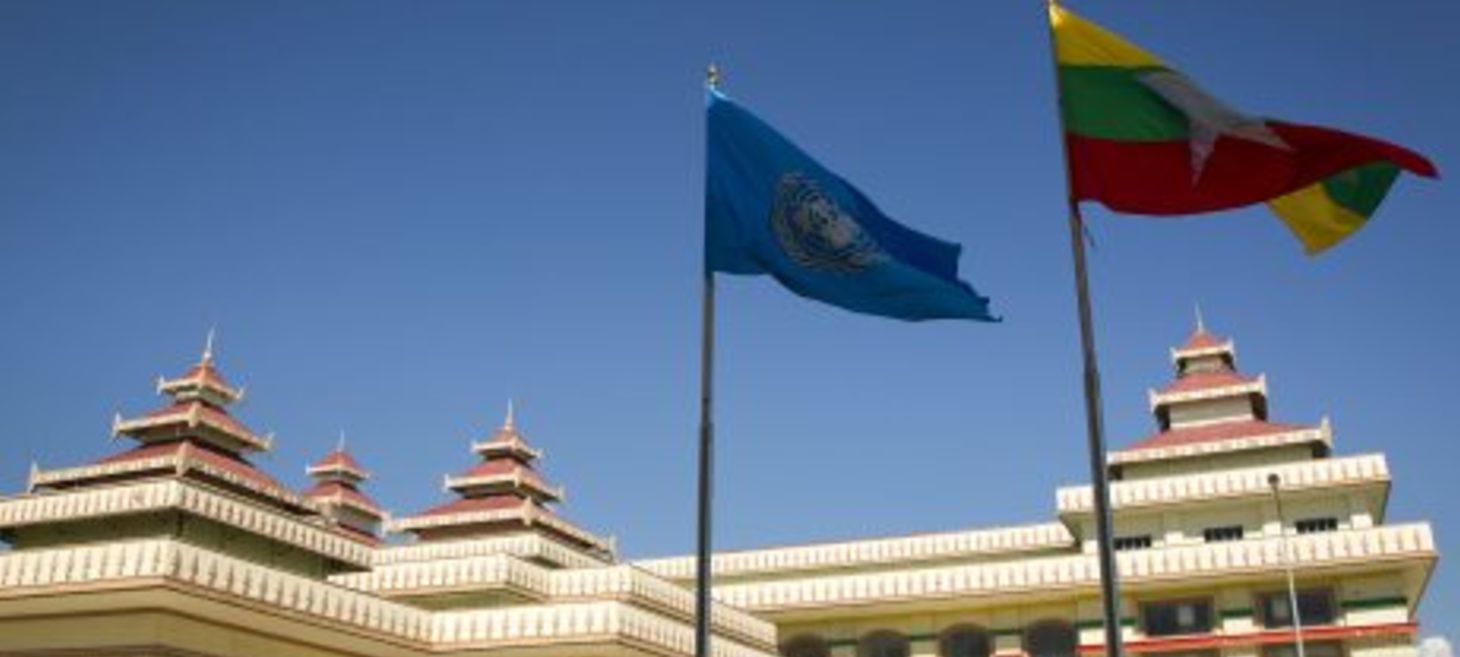
Myanmar Military Ends State of Emergency to Prep for Election at Year’s End
Myanmar's military junta has lifted the state of emergency, which was initially declared after its 2021 coup, in anticipation of a planned election in December 2025, stating its intention to move towards a multi-party democracy. While the State Administration Council (SAC) has been dissolved and a new caretaker government appointed with Senior Gen. Min Aung Hlaing as interim president, the military leadership remains firmly in charge and has established an election commission led by Min Aung Hlaing himself. Nevertheless, independent observers, resistance groups, and the U.N. have denounced these election plans as a "fraud" designed to perpetuate military rule and normalize international relations, especially given the ongoing civil war, human rights violations, and the dissolution of major political parties, necessitating the election to be held in stages.
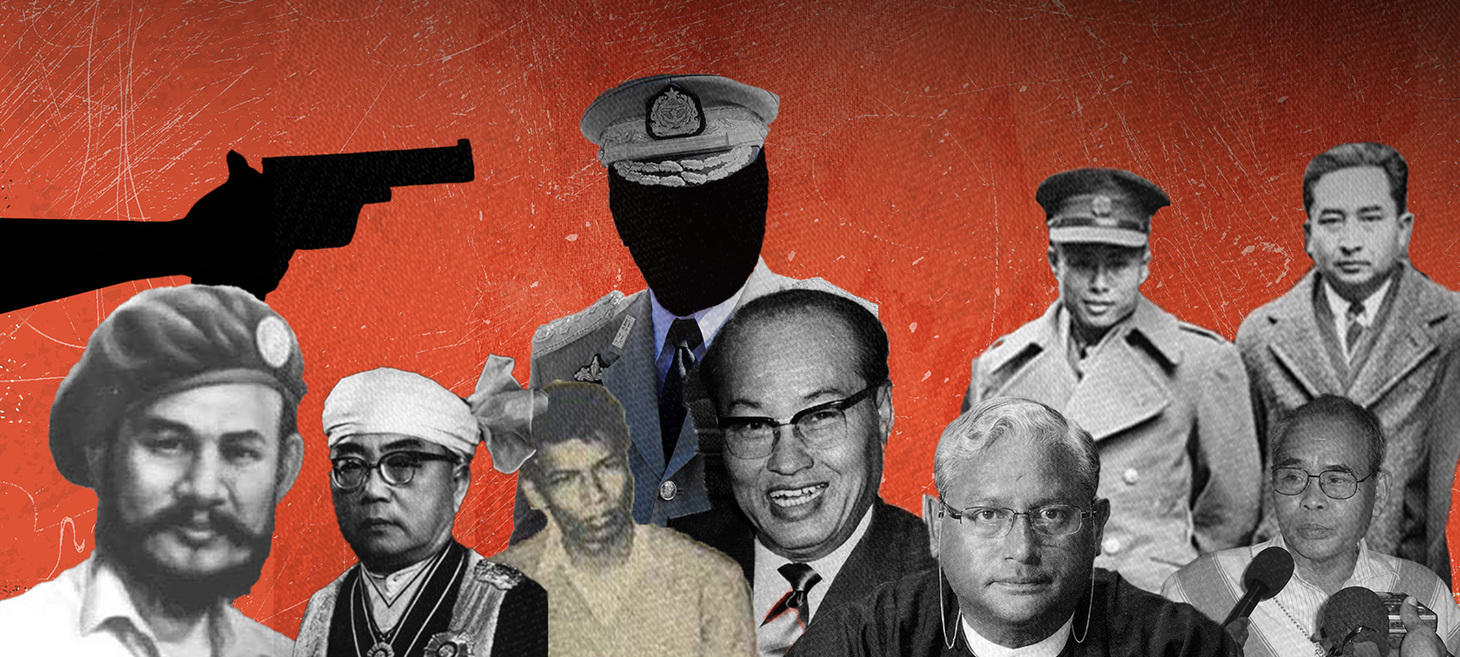
Political Assassinations and Myanmar’s Destiny
Political assassinations have tragically shaped Myanmar's destiny, frequently removing "good, decent and responsible leaders" who might have guided the country toward a better future, while destructive figures often remained. The sources detail numerous significant killings throughout Myanmar's history, including Gen. Aung San and his cabinet before independence, as well as figures like U Tin Tut, Saw Ba U Gyi, U Ko Ni, and attempts against dictators like Ne Win. Ultimately, the text raises profound moral and political questions about whether assassination is justifiable or truly effective in changing an "evil system," or if another destructive leader would simply rise in place of the one removed.
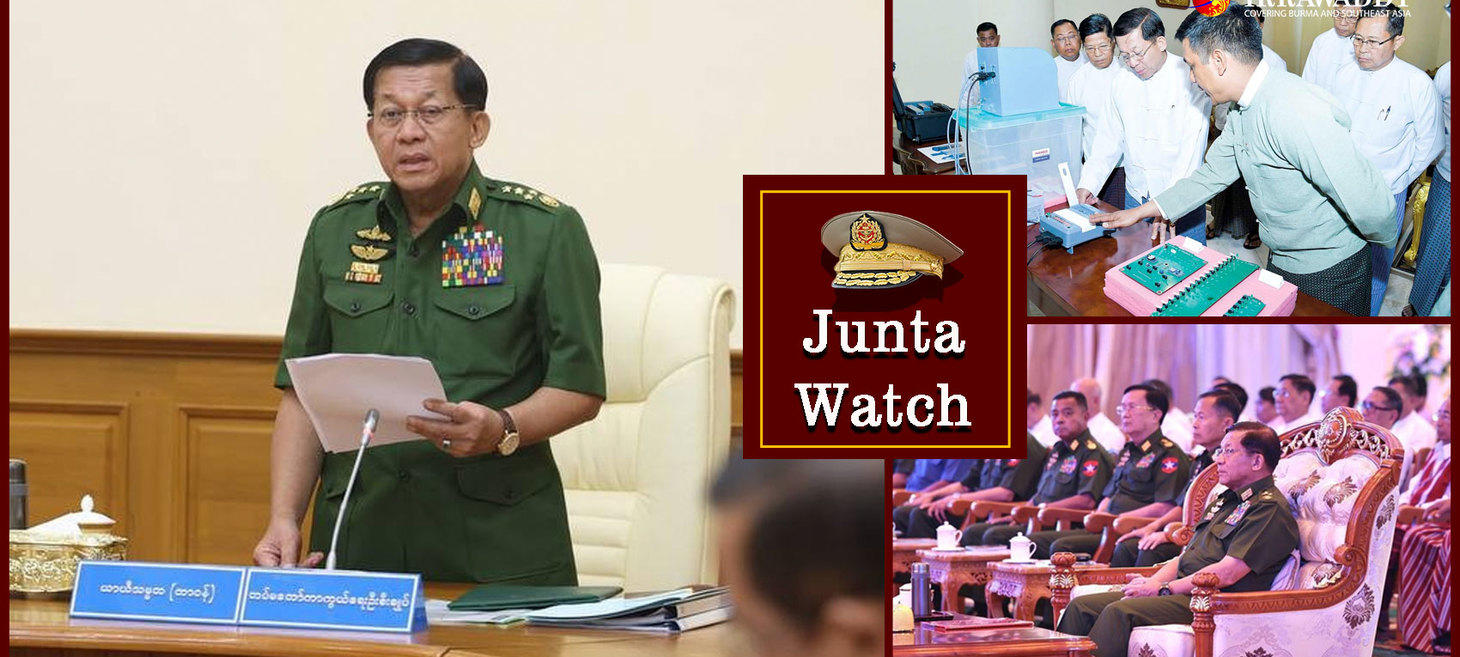
Coup Leader Rebrands Regime and Declares ‘Second Chapter’ of Rule
Coup leader Min Aung Hlaing has declared a "second chapter" of his rule, describing the previous four years of turmoil as the "first chapter" which he "endured successfully". This new phase involves cosmetic regime changes such as dissolving the State Administration Council (SAC) and forming the National Security and Peace Commission (NSPC), as a first step toward a stage-managed December election. Through these actions, Min Aung Hlaing aims to tighten his grip on power under the guise of a civilian government and fulfill his ambition of becoming president, while imposing harsh new punishments, including the death penalty, for disrupting the planned poll and urging resistance fighters to surrender.
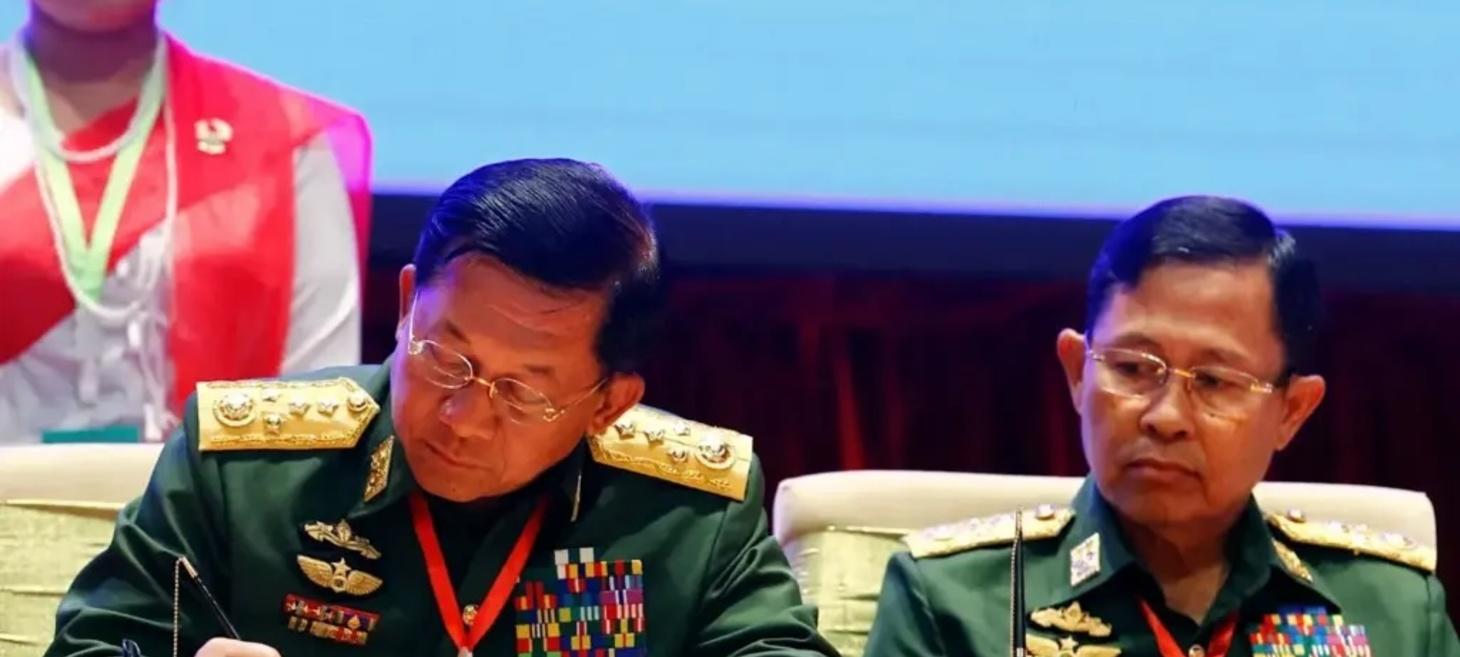
JUNTA’S RE-BRANDING ITSELF MAKES NO DIFFERENCE: SAC becomes SSPC but political decision-making still firmly in Min Aung Hlaing’s hand
The Myanmar junta recently re-branded the State Administration Council (SAC) as the State Security and Peace Commission (SSPC), following the rescission of the state of emergency after four and a half years of military rule. Despite this change and Min Aung Hlaing stepping down as prime minister, he retains ultimate political decision-making power as chairman of the SSPC, commander-in-chief, and acting president. Concurrently, the military declared martial law in 63 townships across nine states and regions, primarily those controlled by anti-junta opposition forces, in an apparent effort to regain territory and control ahead of planned elections, though this move is viewed as a sign of weakening control and is unlikely to resolve the ongoing conflict.
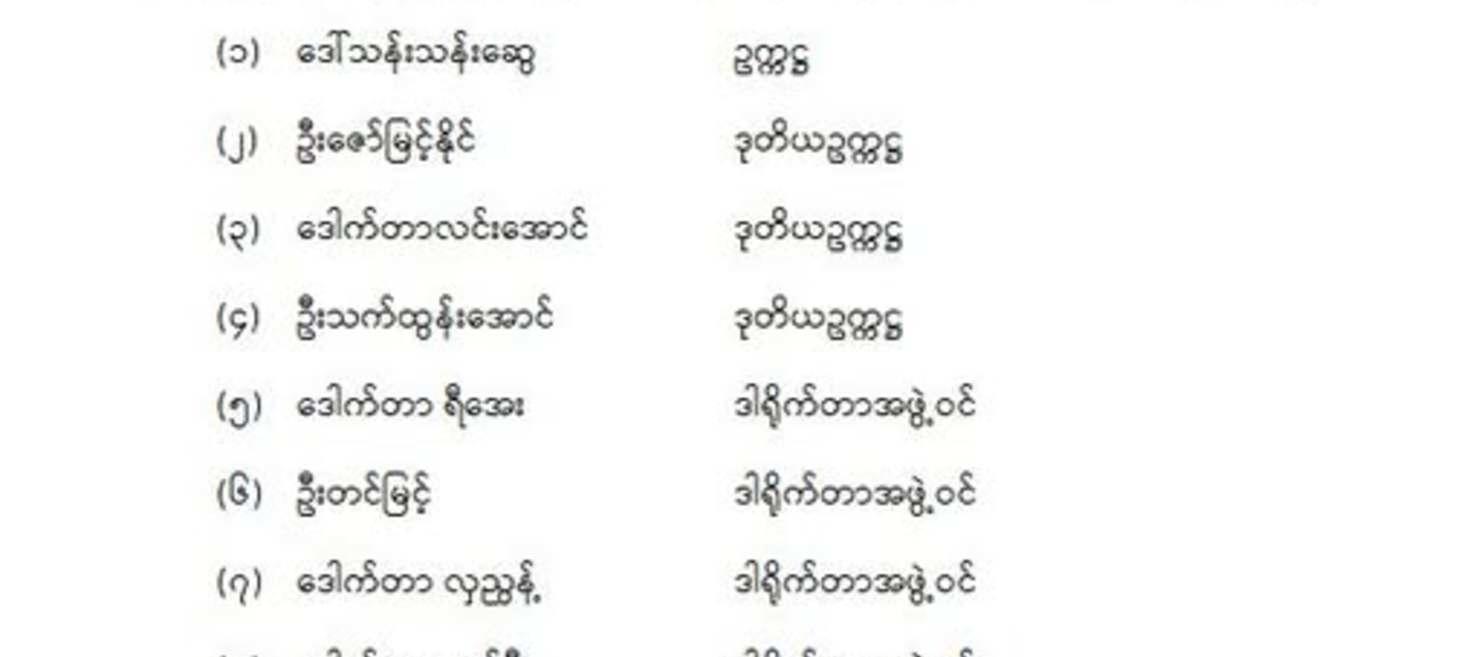
NDSC appoints Central Bank of Myanmar Governor, Vice Governor, and Board of Directors
The National Defence and Security Council (NDSC) announced on July 31 that it has appointed new leadership for the Central Bank of Myanmar (CBM), including the Governor, Vice Governor, and members of the Board of Directors, in accordance with Article 427, Sub-section (b) of the Constitution. Daw Than Than Swe has been appointed as the Governor, and U Zaw Myint Naing, Dr Lin Aung, and U Thet Htun Aung were appointed as Vice Governors. Furthermore, Dr Yee Aye, U Tin Myint, Dr Hla Nyunt, and Dr Zaw Oo have been named as members of the Board of Directors of the Central Bank of Myanmar.
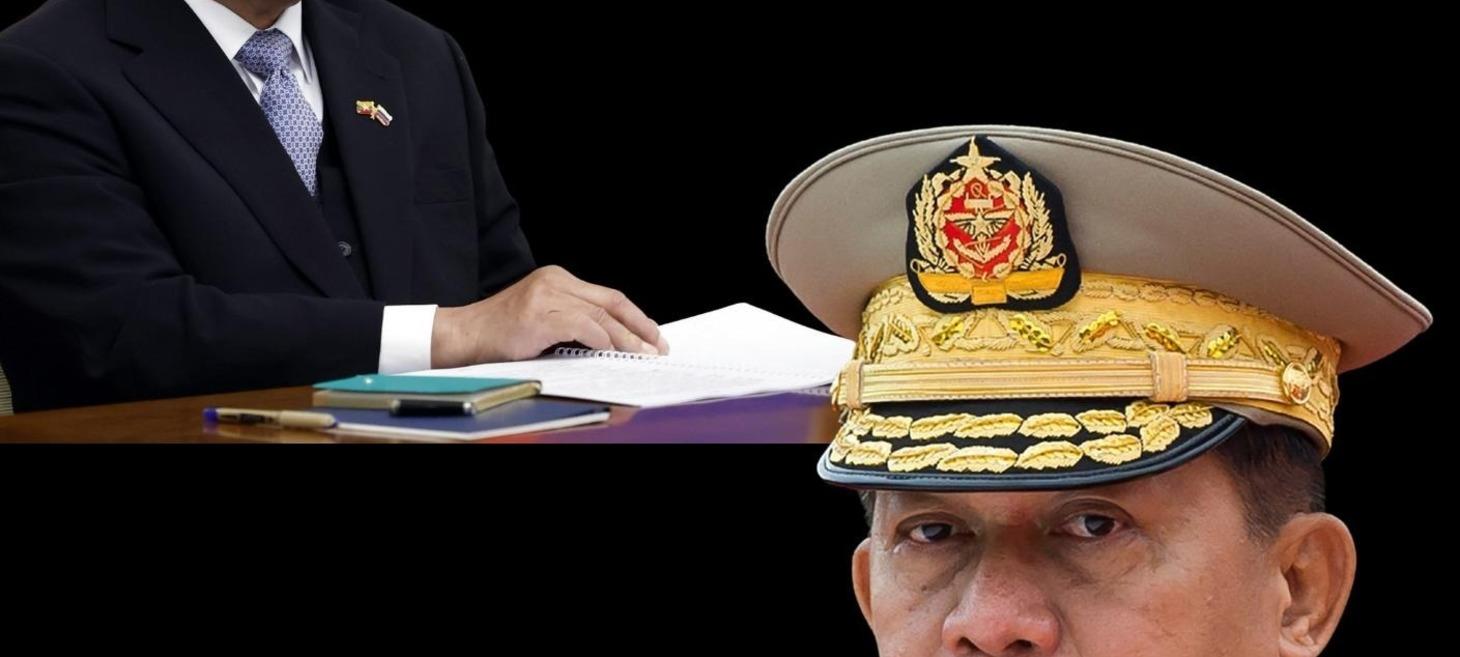
Myanmar’s Min Aung Hlaing: The dictator who would be president
Min Aung Hlaing, referred to as Myanmar's dictator, is engaged in political maneuvers aimed at securing lifelong control under a civilian façade. His regime, the Myanmar junta, is responsible for ongoing violence, including shelling and airstrikes causing deaths and displacement, while also blocking earthquake aid and imposing economic controls such as forced exchange rates for export earnings. Despite the regime's continued presence and plans for elections, they are reportedly losing ground to anti-junta forces amidst escalating violence, and the population faces significant hardships, including land grabs, power shortages, and severe prison conditions.
Sanctions
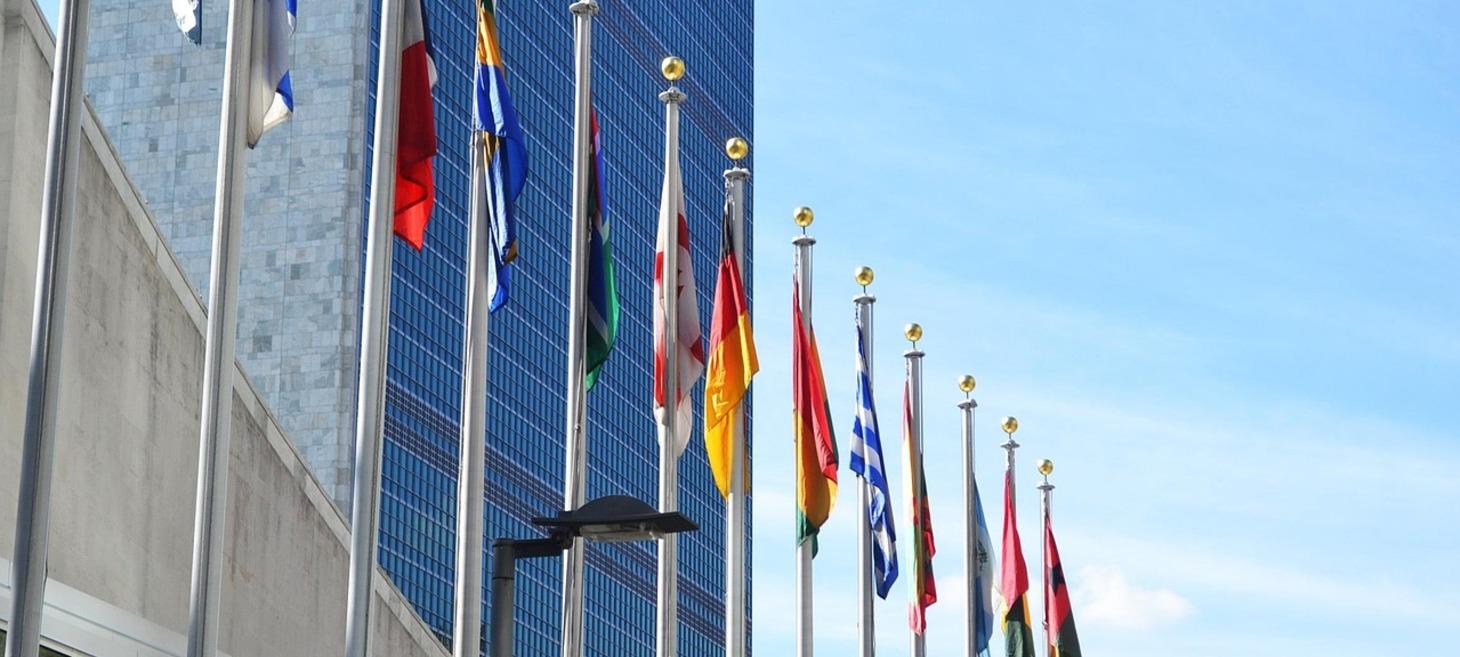
UN expert criticizes US rollback of Myanmar sanctions as ‘unconscionable’
A UN expert, Tom Andrews, has strongly criticized the US government's "unconscionable" decision to roll back sanctions against entities supporting Myanmar's military junta, stating that these entities facilitate the junta’s arms trade. Andrews explained that this military support has been used in attacks that likely constitute crimes against humanity and war crimes, and he condemned the rollback as a major step backward for international efforts to save lives by restricting the junta’s access to weapons. The sanctions, initially imposed under a February 2021 executive order by then-President Joe Biden due to a military coup, had successfully limited the junta's access to military equipment by over 30% between 2023-2024, but the current lift follows a recent letter from President Donald Trump to Myanmar’s military leader.